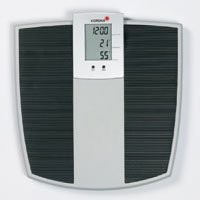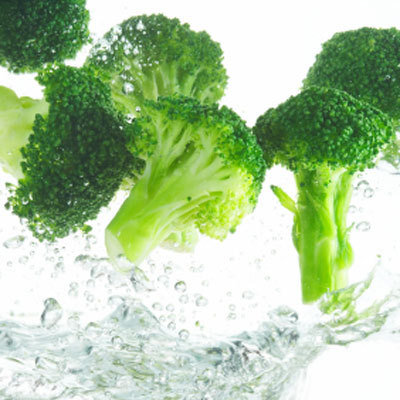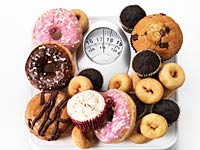How To Use Willpower To Lose Weight
What Is Willpower?
Willpower is your ability to set a course of action and say, “Engage!”
Willpower provides an intensely powerful yet temporary boost. Think of it as a one-shot thruster. It burns out quickly, but if directed intelligently, it can provide the burst you need to overcome inertia and create momentum.
Willpower is a concentration of force. You gather up all your energy and make a massive thrust forward. You attack your problems strategically at their weakest points until they crack, allowing you enough room to maneuver deeper into their territory and finish them off.
The application of willpower includes the following steps:
1. Choose your objective
2. Create a plan of attack
3. Execute the plan
With willpower, you may take your time implementing steps 1 and 2, but when you get to step 3, you’ve got to hit it hard and fast.
Don’t try to tackle your problems and challenges in such a way that a high level of willpower is required every day. Willpower is unsustainable. If you attempt to use it for too long, you will burn out. It requires a level of energy that you can maintain only for a short period of time. In most cases the fuel is spent within a matter of days.
Use Willpower to Create Self-Sustaining Momentum
So if willpower can only be used in short, powerful bursts, then what is the best way to apply it? How do you keep from slipping back into old patterns once the temporary willpower blast is over?
The best way to use willpower is to establish a beachhead, such that further progress can be made with far less effort than is required of the initial thrust. Remember D-Day? Once the Allies had established a beachhead, the road ahead was much easier for them. It was still challenging to be sure, especially with the close quarters fighting among hedge rows in France before the Rhino Tanks began plowing through them, but it was a lot easier than trying to maintain the focus, energy, and coordination of a full scale beach invasion every single day for another year.
So the proper use of willpower is to establish that beachhead - to permanently change the territory itself so that it is easier to continue moving on. Use willpower to reduce the ongoing need for such a high level of sustained force.
An Example
Let’s put all of the above together into a concrete example.
Suppose your objective is to lose 20 pounds. You attempt to go on a diet. It takes willpower, and you do OK with it the first week. But within a few weeks you’ve fallen back into old habits and gained all the weight back. You try again with different diets, but the result is still the same. You can’t sustain momentum for long enough to reach your goal weight.
That’s to be expected since willpower is temporary. It’s for sprints, not marathons. Willpower requires conscious focus, and conscious focus is very draining. It cannot be maintained for long. Something will eventually distract you.
Here’s how to tackle that same goal with the proper application of willpower. You accept that you can only apply a short burst of willpower, maybe a few days at best. After that it’s gone. So you’d better use that willpower to alter the territory around you in such a way that maintaining momentum won’t be as hard as building it in the first place. You need to use your willpower to establish a beachhead on the shores of your goal.
So you sit down and make a plan. This doesn’t require much energy, and you can spread the work out over many days.
You identify all the various targets you’ll need to strike if you want to have a chance of success. First, all the junk food needs to leave your kitchen, including anything you have a tendency to overeat, and you need to replace it with foods that will help you lose weight, like fruits and vegetables. Secondly, you know you’ll be tempted to get fast food if you come home hungry and don’t have anything ready to eat, so you may pre-cook a week’s worth of food in advance each weekend. That way you always have something in the refrigerator. You set aside a block of several hours each weekend to buy groceries and cook all your food for the week. Plus you get a decent cookbook of healthy recipes.
Then you execute, hard and fast. You can probably implement the whole plan in one day. By the end of the day, you’ve used your willpower not to diet directly but to establish the conditions that will make your diet easier to follow. When you wake up the next morning, you’ll find your environment dramatically changed in accordance with your plan. Your fridge will be stocked with plenty of ready made healthy food for you to eat. There won’t be any junk foods in your home. You’ll have a regular block of time set aside for grocery shopping and food prep. It will still require some discipline to follow your diet, but you’ve already changed things so much that it won’t be nearly as difficult as it would be without these changes.
Don’t use willpower to attack your biggest problem directly. Use willpower to attack the environmental and social obstacles that perpetuate the problem. Establish a beachhead first, and then strengthen your position. Habit puts action on autopilot, such that very little willpower is required for ongoing progress, allowing you to practically coast towards your goal.
Related Articles
-
It Pays to Understand More about What a Good Liposuction Tumescent Technique Is
It will certainly pay for you to first of all ensure that your surgeon
-
Hoodia Gordonii - The Hoodia Cactus - Whered My Appetite Go? My Experience with Pure Hoodia
If you are into herbs and natural cures, youve undou
-
Phentermine Atlanta for Weight Loss
Those who would like to lose weight without exerting so much effort w
-
Everloss - Breakthrough Weight Loss Program Helps You Lose Over 20 Pounds in 1 Month!
Click Here Now to Lose 23 Pounds Every Month! Do you have more than 15
-
Fat Burning Furnace Scam Blog
Of all the weight loss program in the industry, why can Fat Burning F
-
Johnny King Lose 100 Pounds for Good Review
Do you want to finally lose weight? Do you want to get rid of the unwa
- DON'T MISS
- Dieting to Lose A Few Pounds
- Discover the Fast Weight Loss Secret and Get That Dream Physique
- Protein Foods For Weight Loss
- Meizitang botanical slimming
- The Diet Solution Ebook Torrent
- Burn the Fat Feed the Muscle - Burn The Fat eBook Review
- Week Four: One Month into the Program and My Clothes are Getting Loose!
- How to Prevent Weight Gain as We Age
- Fat Burning Furnace - Simple Diet Changes That are The Difference Between Being Fat and Being Thin!
- Lose Weight Following Principles of Dumping Syndrome




